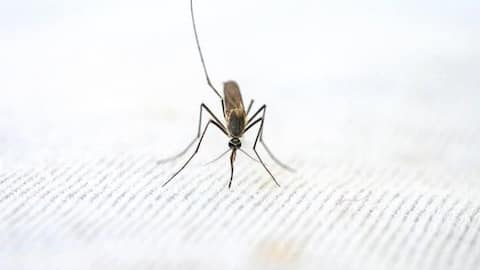World Malaria Day: Ensuring equity in access to prevention, treatment
What's the story
As the world observes World Malaria Day on April 25, under the theme of Health Equity, Gender, and Human Rights, it becomes very important to know that access to malaria prevention and treatment is biased and the quest for fairness must go on. Here are some insights shared by Prasad Phadke, Founder & CEO at EcoBioTraps, which offer valuable perspectives on this critical issue.
Differences
Socio-economic disparities
Studies have consistently highlighted the glaring gap between the healthcare utilization patterns of wealthier individuals and those from lower socio-economic backgrounds. It's evident that economic status significantly dictates the extent of access to formal healthcare facilities for malaria treatment. This persistent disparity underscores the urgent need for targeted interventions to bridge the gap and ensure equitable access for all, regardless of financial standing.
Prioritizing precaution
Because prevention is better than cure
Equitable distribution of eco-friendly prevention methods is a necessity. The challenge is that these interventions reach the most vulnerable segments of society, including those from economically disadvantaged backgrounds and remote rural areas. By prioritizing targeted distribution efforts, we can maximize the reach and impact of preventive measures, thereby reducing the burden of malaria on marginalized communities and fostering a more equitable healthcare landscape.
Education
Community empowerment
The effectiveness of these initiatives hinges on their ability to resonate with diverse socio-economic groups. Tailoring awareness campaigns to address the specific needs, perceptions, and cultural nuances of different segments of society is essential. By enhancing knowledge about malaria prevention and debunking myths surrounding the disease, we can empower individuals to take proactive steps towards safeguarding their health, irrespective of their socio-economic status.
Disparities
Urban and rural
Urban centers typically boast a more robust healthcare infrastructure, with a higher concentration of private and general hospitals. In contrast, rural communities often grapple with limited access to quality healthcare services, exacerbating existing health inequalities. Bridging this urban-rural divide is important for ensuring universal access to malaria treatment and leveling the playing field for individuals residing in remote and underserved regions.
Factors
Influencing health-seeking behavior
Individuals' perceptions of healthcare accessibility play a pivotal role in shaping their treatment-seeking behavior. Challenges such as long waiting times at public hospitals and the distance to healthcare facilities can act as deterrents, prompting individuals to seek alternative sources of treatment. Addressing these barriers requires a concerted effort to improve the efficiency and accessibility of healthcare services, particularly in underserved areas.
Finally
Household dynamics and treatment access
Socio-economic status, household size, and decision-making processes all come into play when determining which treatment sources are utilized. Recognizing and addressing these dynamics is important for designing targeted interventions that cater to the unique needs of different socio-economic groups. By taking a holistic approach that considers household dynamics, we can ensure that malaria treatment services are accessible to all, regardless of their socio-economic background.
